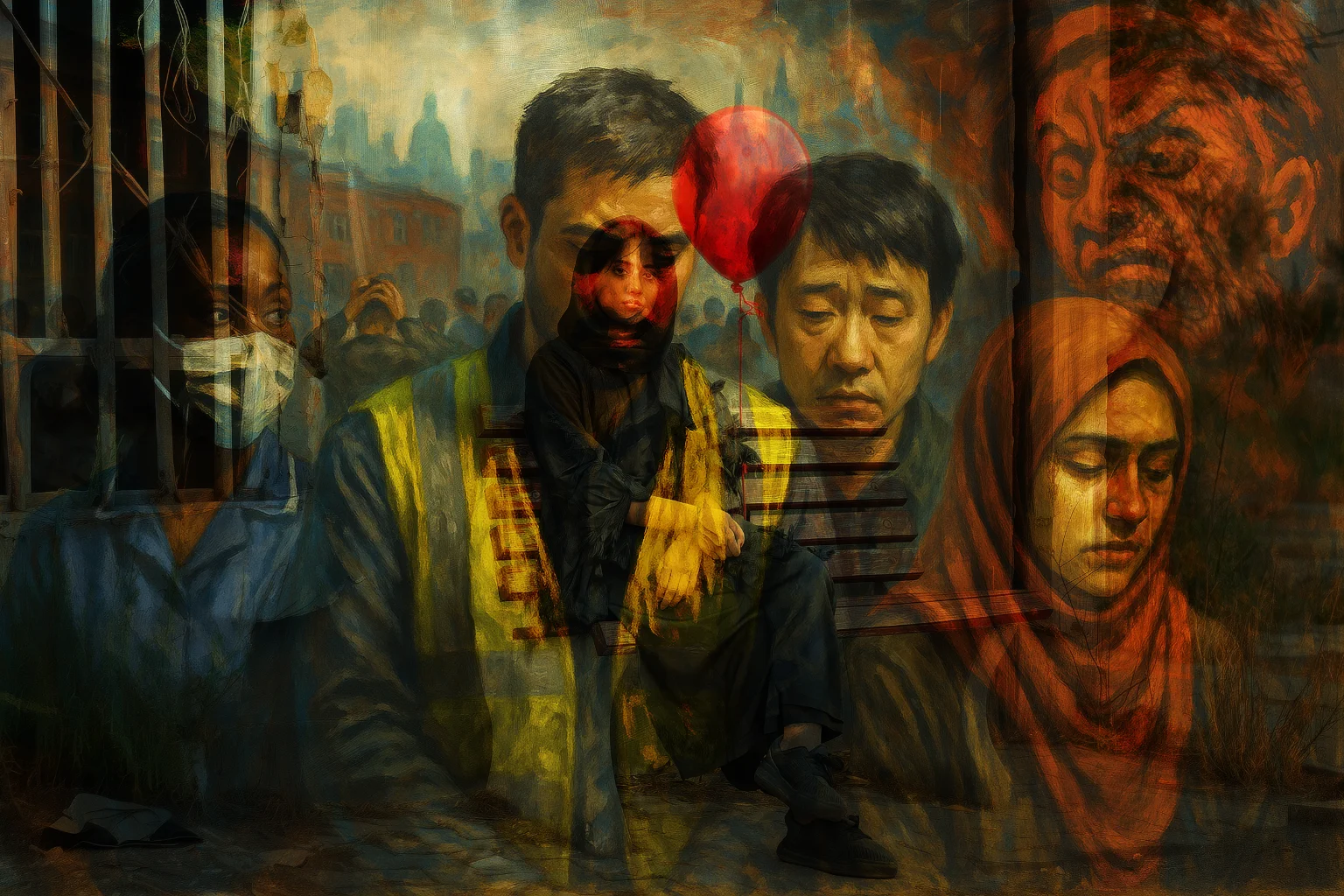The Cost of Prejudice: Immigrants, Mental Health, and the British Divide
The United Kingdom is often praised for its openness: about 16 % of everyone now living here was born abroad (10.7 million people), and migrants keep vital systems moving – nearly one in five NHS staff are non-British nationals and many of the country’s fastest-growing firms have immigrant founders. (migrationobservatory.ox.ac.uk, commonslibrary.parliament.uk)
Yet, side-by-side with these clear benefits runs a darker thread: racism and xenophobia have risen sharply. Police logged over 100,000 racist hate-crime reports in a single year for the first time in 2022, and surveys show sizeable numbers of migrants feel unsafe or avoid places because of abuse. (theguardian.com, migrationobservatory.ox.ac.uk)
That hostility is not just hurtful in the moment – it damages mental health. National health experts warn that repeated exposure to racism creates chronic stress, raising risks of anxiety, depression and even PTSD for adults, while evidence shows racial discrimination can erode children’s self-esteem and increase their chances of anxiety or depression later in life. (kingsfund.org.uk)
If large numbers of the next generation grow up under that weight, the UK risks a future workforce carrying unseen scars: lower confidence, poorer wellbeing and lost potential.
Ironically, many white Britons relocate abroad when they have the means – around five million UK citizens already live overseas – enjoying the welcome and opportunities they sometimes deny newcomers at home. (william-russell.com)
A healthier path is possible. Teaching shared civic values, celebrating every child’s heritage and confronting prejudice wherever it appears can help Britain grow into the truly inclusive society it likes to imagine itself to be. In simple terms: when migrants are safe, respected and able to thrive, everyone’s future is brighter – and that is a win no government or citizen should pass up.
Key findings at a glance (2020-2025)
How many people are migrants?
- About 10.7 million people – 16 % of everyone living in the UK – were born abroad in the 2021/22 Census, and the number has edged higher since then. (migrationobservatory.ox.ac.uk)
Keeping the country running
- Nearly half of hospital doctors were trained overseas, and overseas citizens now make up roughly one-fifth of the whole NHS health-and-care workforce. (migrationobservatory.ox.ac.uk)
- Migrant workers also fill big shares of jobs in tech, hospitality and construction and start many new firms – almost 40 % of the UK’s fastest-growing start-ups have at least one foreign-born founder. (tenentrepreneurs.org)
Money in, not money out
- Most studies find migrants’ effect on the public purse is small but slightly positive (under ±1 % of GDP). The Office for Budget Responsibility says higher migration can lift growth and cut future deficits. (migrationobservatory.ox.ac.uk, obr.uk)
Everyday racism and discrimination
- Around 16 % of migrants say their group faces discrimination; 19 % feel unsafe, 15 % have been insulted, and 10 % avoid certain places because of who they are. (migrationobservatory.ox.ac.uk)
- Hiring tests show employers still call back fewer Pakistani- or Nigerian-named applicants than equally qualified White-British-named ones. (migrationobservatory.ox.ac.uk)
Hate-crime trends
- Police recorded 108,000 race hate crimes in 2021/22 and 102,000 in 2022/23 – roughly triple the total a decade ago, with spikes after events such as Brexit or Black Lives Matter protests. (gov.uk)
- During Covid-19, hate crimes against South and East Asian people jumped 21 %; reports involving Chinese victims nearly tripled. (theguardian.com)
Mental-health toll
- The King’s Fund notes racism creates chronic stress that harms both physical and mental health for ethnic-minority and migrant groups, contributing to anxiety, depression and even PTSD. (kingsfund.org.uk)
When times get tough, migrants get blamed
- As prices soared in 2022-23, 41 % of Britons named immigration a top worry and 20 % called it the single biggest issue – the highest level since the Brexit years. (yougov.co.uk)
- Think-tank analysis says migrants are “increasingly becoming scapegoats” for problems such as the housing crisis, because blaming them is easier than fixing policy failures. (iea.org.uk)
- Hostility has spilled into the streets: in August 2024 far-right rioters tried to set fire to a hotel housing asylum seekers in Rotherham, injuring police and terrifying residents. (theguardian.com)
Bottom line
- Migrants boost the economy and staff vital services, yet regularly face racism that undermines their safety and mental health.
- Economic downturns and polarising politics make scapegoating worse, even though the evidence shows migrants are, on balance, a net gain to Britain.
Dig deeper: see the attached PDF for the full research and detailed findings.
Building a Shared Future
Britain works best when everyone pulls in the same direction. That means two things at once:
A welcoming host society
- British people and institutions must keep challenging racism, opening doors to fair jobs and housing, and treating newcomers with the same dignity they would want for their own children.
Engaged and open-minded newcomers
- Immigrants, for their part, have a duty to learn English well, understand local laws and customs, and take part in the civic life of their new home.
- Respect for British values—democracy, free speech, equal rights, queueing etiquette, even chatting about the weather—is not about abandoning one’s roots; it is about adding new threads to an already colourful national fabric.
- Sharing food, festivals and stories should be a two-way street: newcomers offer fresh perspectives, but they also listen, observe and adapt so that everyday life flows smoothly for everyone.
Most migrants come because Britain offers stability, education, and opportunity their birth countries may still be building. A little gratitude goes a long way: paying taxes on time, volunteering in the community, and helping neighbours in need quietly say “thank you” far louder than words.
When hosts welcome and newcomers integrate, the country gains twice—skilled hands and creative minds join the workforce, while children grow up seeing diversity and cooperation as normal. The result is a UK that is safer, kinder and more prosperous for all who call it home.







